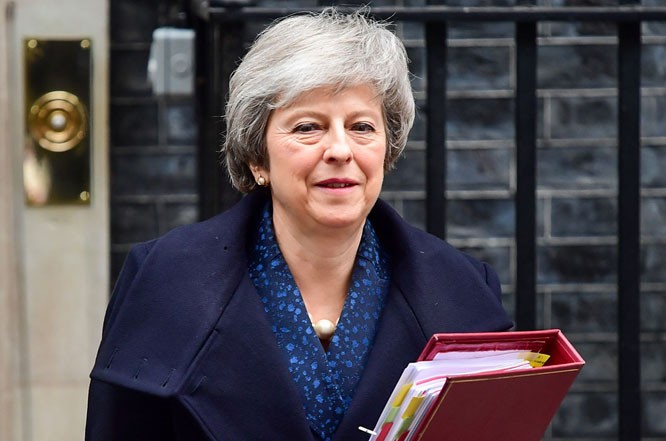
Uncertainty about the future remains the key feature of Brexit

Dear All,
In Britain, the drama surrounding the process of extricating the country from the European Union (EU) continues unabated.
The beleaguered Prime Minister, Theresa May, is fighting to defend the way she is leading the UK out of the EU, but she is having to fight on several fronts: forced to answer not just critics on the opposition benches but also to defend her actions to the Brexiters within her own party.
This group of ‘hard Brexit’ proponents created much drama last week when they posed a formal challenge to May’s leadership, by triggering a vote of no confidence within the parliamentary party. This was announced by the relevant Conservative committee (the 1922 Committee) on Tuesday night and then took place on Wednesday evening. And it all happened when May was in the midst of finalising the Brexit package, dashing to Brussels to meet the EU and European Council, rushing to Dublin to try to reassure coalition allies… And in the midst of this, having to dash back to London to defend herself against her own party colleagues, who periodically attempt to undermine her.
This particular group that engineered the no confidence vote is highly critical of May’s handling of the Brexit process. Parliamentary demands for a second referendum and the parliamentary debate around the Brexit package seem to them to have diluted the referendum decision and weakened the electorate’s voice.
May’s misguided calling of a snap general election last year weakened her position considerably -- the Conservatives lost their majority and were forced to form a minority government heavily reliant on the Protestant DUP (Democratic Unionist Party) in Northern Ireland. This lack of political judgement resulted in complicating the whole Brexit process considerably, and now the ‘Irish backstop’ question has become a huge issue.
What this refers to is the problem of the border between Republic of Ireland (an EU member) and Northern Ireland (part of Brexit). For the Irish, the question of a ‘hard border’ is extremely emotive, and to the Catholic population, it is unacceptable. What this means in effect is that the Good Friday agreement that resulted in the Irish peace process has mostly fallen apart. The backstop is meant to be a special arrangement to apply to the border post-Brexit, but it involves Northern Ireland having to abide by some EU Customs Union rules.
The recent challenge from May’s own parliamentary colleagues came just after her postponement of the Commons debate and vote on her Brexit package. This was to have been an important moment for gathering consensus on Brexit. But that has not been achieved, and now many political commentators are taking the view that Article 50 will have to be extended i.e. that the process will not be complete by March 29.
But despite the fact that the PM survived the no confidence vote, as many as 117 MPs voted against her. This is a large number as the vote was held on the basis of the lack of confidence expressed by just 48 members. What is positive though for Theresa May is that according to the rules her leadership cannot now be challenged by her party colleagues for at least one year.
This means that the likes of Jacob Rees-Mogg, Boris Johnson and other members of the Eurosceptic European Research Group (ERG), who, while they may not directly try to oust her, can certainly continue to undermine her.
The problem now is the uncertainty. Nobody knows what Brexit will really look like. People mutter about ‘independent trade deals’ and getting rid of the EU bureaucracy and its dictates, but nobody is really sure what the details of this are or what sort of country or economy post-Brexit Britain will actually be. The government has to ‘deliver Brexit’, the problem is that nobody really knows what this means…
And it does not look as if any agreement or approval on the Brexit package is likely before March. A rather messy business…
Best wishes,